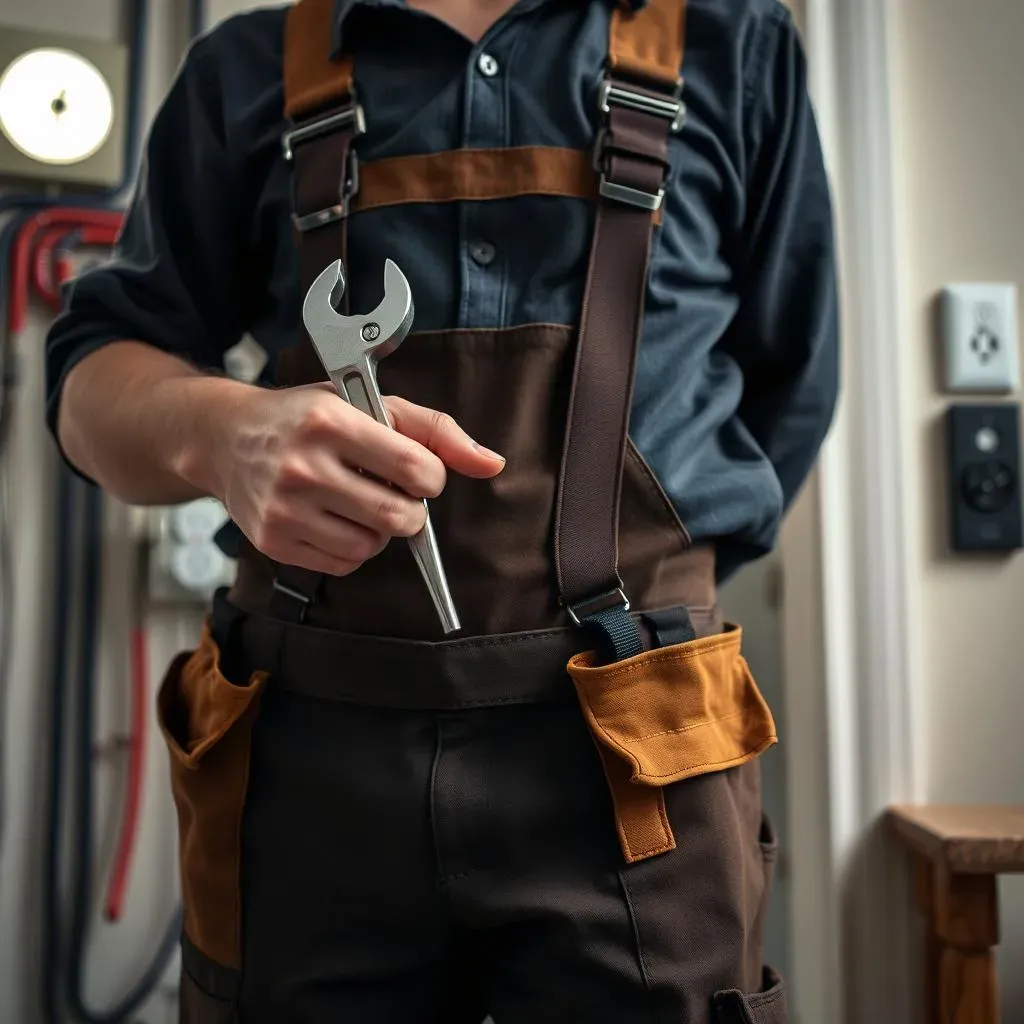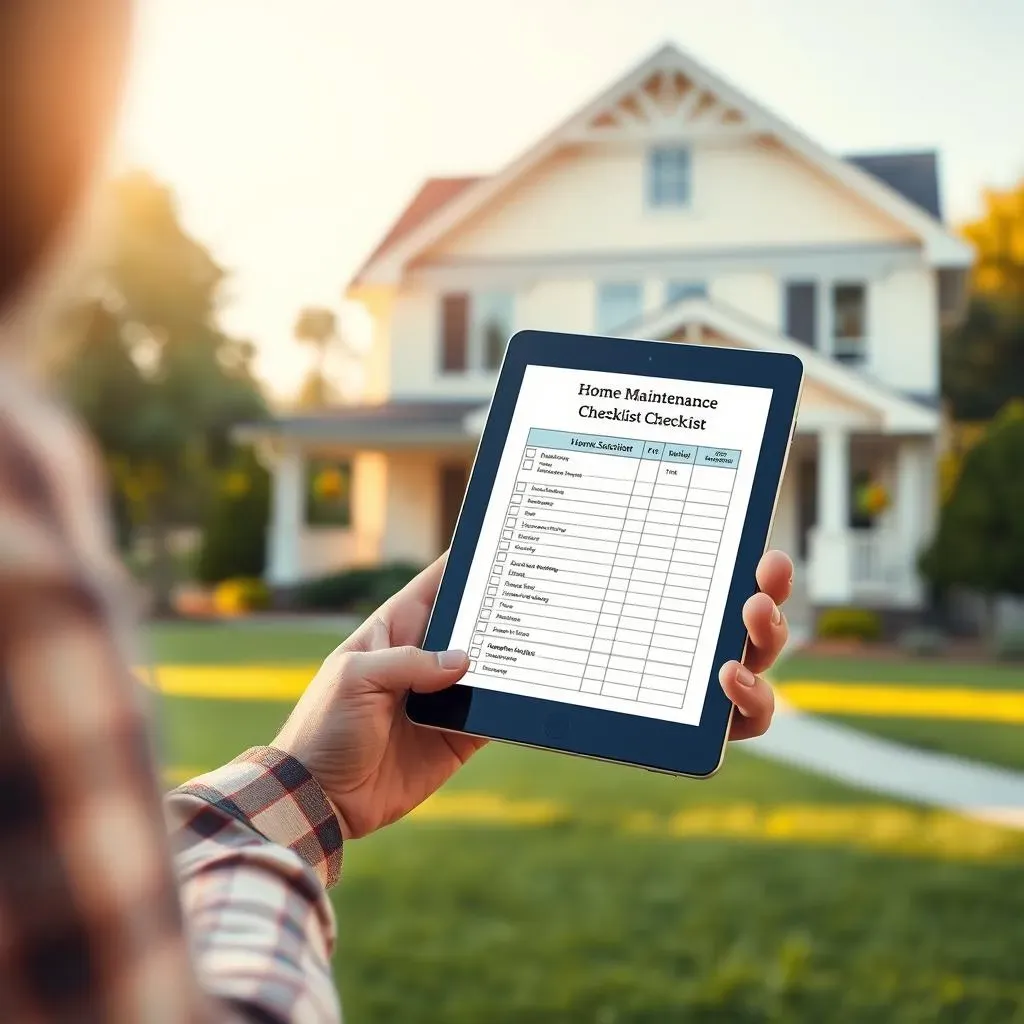Table of Contents
So, you've finally got the keys to your dream home! Congratulations! But with that exciting new chapter comes a responsibility: home maintenance. Don't worry, it's not as daunting as it sounds. This article is your ultimate guide to essential home maintenance tips for new homeowners, designed to help you keep your house in tip-top shape without needing a degree in engineering. We'll explore preventative measures to avoid costly repairs down the line, providing practical, seasonal advice to tackle tasks throughout the year. We'll cover the basics of plumbing and electrical checks, empowering you to handle minor issues confidently. Finally, we'll look at long-term strategies for protecting your investment and ensuring your home remains a haven for years to come. Get ready to become a home maintenance master – let's dive in!
Preventative Home Maintenance: Saving Money and Headaches
Preventative Home Maintenance: Saving Money and Headaches
Think of your house like a car – regular checkups prevent major breakdowns. Preventative home maintenance isn't about huge, expensive projects; it's about small, regular actions that save you big in the long run. A little bit of effort now means fewer costly repairs down the road, plus it keeps your home functioning smoothly and safely. Imagine discovering a tiny leak before it floods your basement, or catching a faulty electrical wire before it sparks a fire – preventative maintenance is all about catching these issues *before* they become disasters.
Task | Frequency | Why It Matters |
|---|---|---|
Check for roof leaks (inspect shingles, gutters, flashing) | Twice a year (spring and fall) | Prevents water damage to your home's structure. |
Clean gutters and downspouts | Twice a year (spring and fall) | Prevents clogs that can lead to water damage. |
Inspect foundation for cracks | Annually | Early detection of cracks prevents structural problems. |
One of the biggest benefits of preventative maintenance is peace of mind. Knowing that you're regularly checking on your home's systems means you're less likely to be surprised by sudden, expensive problems. It’s like having a safety net – you're proactively addressing potential issues before they escalate. This proactive approach can also increase your home's resale value; a well-maintained home is always more attractive to potential buyers.
- Regularly inspect your appliances (refrigerator, washing machine, dishwasher) for any signs of malfunction.
- Check smoke and carbon monoxide detectors monthly and replace batteries annually.
- Clean or replace air filters monthly to improve air quality and efficiency.
“An ounce of prevention is worth a pound of cure” – this old saying perfectly sums up the philosophy of preventative home maintenance. Taking these small steps can save you significant time, money, and stress in the long run. Remember, it's not about being a DIY expert; it's about being informed and proactive. Even small tasks can make a big difference!
Seasonal Home Maintenance Tips for New Homeowners
Seasonal Home Maintenance Tips for New Homeowners
Spring Cleaning and Outdoor Prep
Spring is the perfect time to tackle those outdoor chores you've been putting off. Think of it as giving your home a fresh start after winter's slumber. Start by cleaning out your gutters and downspouts – clogged gutters can lead to water damage, and nobody wants that. Then, inspect your roof for any missing or damaged shingles. Pay attention to your siding, too – look for any cracks or damage that might need repair. Don't forget to power wash your deck or patio to remove any dirt and grime that's accumulated over the winter months. A little spring cleaning goes a long way in maintaining your home's curb appeal and preventing future problems.
- Clean windows and screens
- Inspect and clean exterior lighting
- Check for pest infestations (ants, termites etc.)
Summer Maintenance: Focus on Cooling and Protection
Summer brings heat, and with it, the need to focus on keeping your home cool and protected. Check your air conditioning system – make sure it's running efficiently and that the filters are clean. Consider having your AC professionally serviced to prevent costly breakdowns later in the summer. This is also a good time to inspect your home's exterior for any signs of sun damage, such as faded paint or cracked sealant around windows and doors. Addressing these issues now will prevent larger, more expensive problems down the road. Remember, preventative maintenance is your best friend!
Task | Why It Matters |
|---|---|
Clean air conditioning filters | Improves efficiency and air quality. |
Inspect exterior for sun damage | Prevents further damage and increases home value. |
Check sprinkler system | Ensures proper watering and prevents water waste. |
Plumbing and Electrical: Basic Home Maintenance Checks
Plumbing and Electrical: Basic Home Maintenance Checks
Understanding Your Plumbing System
Let's start with the plumbing. Think of your plumbing system as the circulatory system of your house – it needs regular checks to ensure everything flows smoothly. Regularly check for leaks under sinks and around toilets. A slow drip might seem insignificant, but it can waste gallons of water over time, increasing your water bill and potentially causing damage. Listen for unusual noises coming from your pipes – gurgling or banging could indicate a problem that needs attention. And don't forget to check your water heater – ensure it's functioning correctly and that the pressure relief valve is working properly. A little preventative care goes a long way in avoiding plumbing emergencies.
Plumbing Check | Frequency | Why It's Important |
|---|---|---|
Check for leaks under sinks and toilets | Monthly | Prevent water damage and reduce water bills. |
Listen for unusual pipe noises | Monthly | Detect potential clogs or other issues early. |
Inspect water heater | Annually | Ensure proper functioning and safety. |
Navigating Your Home's Electrical System
Now, let's talk electricity. This is where things can get a little more serious, so it's important to be cautious. Regularly check your electrical outlets and switches for any signs of damage, such as loose wires or scorch marks. These are clear indicators of potential fire hazards, so don't ignore them. Also, make sure your circuit breakers are functioning correctly. If a breaker trips frequently, it could mean you're overloading the circuit. If you're not comfortable working with electricity, call a qualified electrician – it's always better to be safe than sorry. Remember, electricity is powerful stuff!
- Test smoke detectors and carbon monoxide detectors monthly.
- Inspect electrical cords for damage; replace damaged cords immediately.
- Never overload electrical outlets.
Combining Plumbing and Electrical for a Safer Home
While plumbing and electrical systems might seem separate, they're actually interconnected in many ways. For instance, a faulty electrical wire could cause a fire that damages your plumbing system. Similarly, a leaky pipe could cause electrical shorts. That's why it’s crucial to address both systems during your home maintenance routine. By regularly checking both your plumbing and electrical systems, you're not only preventing costly repairs but also ensuring a safer living environment for you and your family. Think of it as a holistic approach to home safety – addressing both systems simultaneously provides a comprehensive layer of protection.
Protecting Your Investment: LongTerm Home Maintenance Strategies for New Homeowners
Protecting Your Investment: LongTerm Home Maintenance Strategies for New Homeowners
Major System Upgrades: Planning for the Future
Thinking long-term about your home's major systems—roof, HVAC, and plumbing—is crucial. These are significant investments, and neglecting them can lead to extremely expensive repairs down the road. Regular maintenance, as we’ve discussed, helps extend their lifespan, but eventually, upgrades will be necessary. Consider creating a long-term budget to plan for these inevitable replacements. This proactive approach prevents you from facing a sudden, unexpected financial burden when a system fails. It's like saving for retirement – you make small contributions over time, avoiding a massive financial shock later. The best way to approach this is to get professional inspections regularly – they can alert you to potential problems before they become major headaches.
System | Average Lifespan | Signs of Wear and Tear |
|---|---|---|
Roof | 15-30 years | Missing shingles, leaks, sagging |
HVAC | 15-20 years | Reduced efficiency, strange noises, frequent breakdowns |
Plumbing | Variable | Leaks, low water pressure, rusty water |
Regular Professional Inspections: Catching Problems Early
While DIY maintenance is great for small tasks, it's wise to schedule regular professional inspections for major systems. A qualified inspector can identify potential problems you might miss, preventing costly repairs down the line. Think of it as getting a yearly checkup for your home. A plumber can check for leaks and potential issues in your plumbing, an electrician can inspect your wiring for safety hazards, and a roofer can assess the condition of your roof. These inspections are an investment in your home's longevity and your peace of mind. Knowing you have a professional's eye on your home's health significantly reduces the risk of costly surprises.
- Schedule annual HVAC inspections.
- Have your plumbing inspected every 2-3 years.
- Get your roof inspected every 5 years, or after severe weather.
Creating a Home Maintenance Binder: Your Personal Guide
Finally, create a comprehensive home maintenance binder—a central repository for all your home's important information. Include warranty information for appliances, service records for major systems, contact details for trusted contractors, and a checklist for regular maintenance tasks. This binder becomes your go-to resource for everything related to your home's upkeep. It's incredibly helpful for keeping track of repairs, noting down when systems were last serviced, and makes it easier to plan for future maintenance and upgrades. It's essentially a personalized manual for your home, making it a valuable asset for years to come. Think of it as your home's personal health record; it's a crucial tool for long-term care.